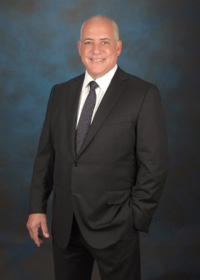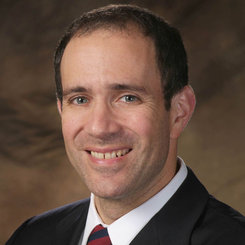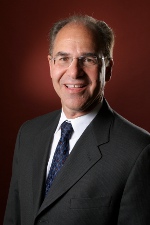The decision to go into private practice or take up hospital employment is a difficult but also a personal one. Here six spine surgeons share their thoughts on independent practice and hospital employment.
Ask Spine Surgeons is a weekly series of questions posed to spine surgeons around the country about clinical, business and policy issues affecting spine care. We invite all spine surgeon and specialist responses. Next week's question: What can spine surgeons do to alleviate the effects of declining reimbursement on their practices?
Please send responses to Anuja Vaidya at avaidya@beckershealthcare.com by Wednesday, March 18, at 5 p.m. CST.
Question: Should independent spine surgeons consider hospital employment? If so, why?
Lloyd Zucker, MD, Chief, Neurosurgery, Delray Medical Center, Delray Beach, Fla.: This is actually a far more complex question than it appears. The perceived benefits or drawbacks of private practice versus hospital employment may vary greatly depending on the personality of the individual surgeon. Many social scientists have opined that the divide begins with the generational differences between the baby boomers, the gen Xers and the millennials. Expectations post-practice are shaped and refined by the changes that have occurred in the format of internship and residency.
Those whom are drawn to the perceived benefits of autonomy, of "being their own master" enjoy private practice. However, market forces and liability questions may shape the style and complexity of practice more than hospital employment. External competition for patients will increase in the years to come, a trend that hospital employment, resembling a large group multispecialty practice may insulate the physician from. At the same time however, the present trend to contract utilizing relative value scales tends to marginalize the other contributions made by the physician to the hospital as they are not easily measured.
The era of the truly independent spine surgeon is drawing to a close. The trend to larger single-specialty groups or hospital employment will continue.
 Gowriharan "Ty" Thaiyananthan, founder of BASIC, Newport Beach, Calif.: One of the biggest myths out there is that spine surgeons and doctors in general will have to consider hospital employment to stay competitive or "stay alive" in modern medicine.
Gowriharan "Ty" Thaiyananthan, founder of BASIC, Newport Beach, Calif.: One of the biggest myths out there is that spine surgeons and doctors in general will have to consider hospital employment to stay competitive or "stay alive" in modern medicine.
That said, the decision to consider hospital employment is really a personal one and comes down to the level of challenges or effort that the doctor is willing to dedicate towards building a practice versus working in a corporate medical environment.
Doctors who are entrepreneurial and who are willing to weather both emotional and financial sacrifices to pursue an independent practice probably would not be satisfied as a hospital employee. The challenges of declining reimbursements, increasing bureaucracy and managed care constraints are not new to medicine. The independent spine surgeons will have to be medical-entrepreneurs and have to be willing to learn and understand the business aspects of medicine.
The new challenge will be mitigating costs while incorporating ancillary services, marketing and physician-owned centers, such as ambulatory surgery centers, into the overall business model, all the while delivering a less expensive "higher" level of outcome-based care. It won't be easy but it is very possible and extremely rewarding professionally.
Spine surgeons who prefer to just "practice medicine" and would rather have some other entity deal with the business, legal and financial details of their business are probably inherently more willing to give up some control of their practice and probably would find hospital employment a better fit.
It comes down to the surgeon's individual circumstances, goals and preferences — my hope is that spine surgeons choose to stay independent.
Richard Guyer, MD, Co-Founder, Texas Back Institute, Chairman, Texas Back Institute Research Foundation (Plano): Absolutely not. It will be a downhill spiral with the physician losing more and more autonomy. With that said it is easier to do so if you are part of a large group.
 Alan S. Hilibrand, MD, Co-Chief, Spinal Surgery, Vice Chair of Academic Affairs and Faculty Development, Jefferson Medical College/The Rothman Institute (Philadelphia): Hospital employment may be attractive because of the burdens it takes off the spine surgeon, including the use of electronic medical records and the need for contracting and negotiation. However, it has serious drawbacks with regards to choice of implant use and may also have limitations with regards to referring physicians and places where the surgeon may operate. One other problem is the potential for a nice initial salary to be subsequently cut year after year if the hospitals profit margins do not materialize.
Alan S. Hilibrand, MD, Co-Chief, Spinal Surgery, Vice Chair of Academic Affairs and Faculty Development, Jefferson Medical College/The Rothman Institute (Philadelphia): Hospital employment may be attractive because of the burdens it takes off the spine surgeon, including the use of electronic medical records and the need for contracting and negotiation. However, it has serious drawbacks with regards to choice of implant use and may also have limitations with regards to referring physicians and places where the surgeon may operate. One other problem is the potential for a nice initial salary to be subsequently cut year after year if the hospitals profit margins do not materialize.
Richard A. Kube II, MD, CEO, Founder, Prairie Spine & Pain Institute, Peoria, Ill.: That completely depends upon the surgeon and the local  market forces. One must obviously weigh the pluses and minuses, but if one went into private practice and has succeeded there for a number of years, there should not be a pressing need to exit and become employed. It really boils down to how prepared one is and whether the practice has been taking the necessary steps to evolve ahead of our changing healthcare system. If so, the practice should be poised to take advantage of new opportunities. Otherwise, a practice that has become victim to complacency or inertia may have few options if the market forces are pressuring referral patterns. As always follow your passion when making your choice and be prepared to work.
market forces. One must obviously weigh the pluses and minuses, but if one went into private practice and has succeeded there for a number of years, there should not be a pressing need to exit and become employed. It really boils down to how prepared one is and whether the practice has been taking the necessary steps to evolve ahead of our changing healthcare system. If so, the practice should be poised to take advantage of new opportunities. Otherwise, a practice that has become victim to complacency or inertia may have few options if the market forces are pressuring referral patterns. As always follow your passion when making your choice and be prepared to work.
 Brian R. Gantwerker, MD, The Craniospinal Center of Los Angeles: That is an individual choice and dependent on the market. If you feel comfortable with having that kind of structure and have the same job satisfaction, it might be for you. At the end of the day, it is your career to do with what you please.
Brian R. Gantwerker, MD, The Craniospinal Center of Los Angeles: That is an individual choice and dependent on the market. If you feel comfortable with having that kind of structure and have the same job satisfaction, it might be for you. At the end of the day, it is your career to do with what you please.
More articles on spine:
Power vs. manual tools for scoliosis surgery — 5 things to know
Stanford neurosurgeon Dr. Paul Kalanithi passes away
Dr. John Jacquemin joins Commonwealth Orthopaedic Centers



